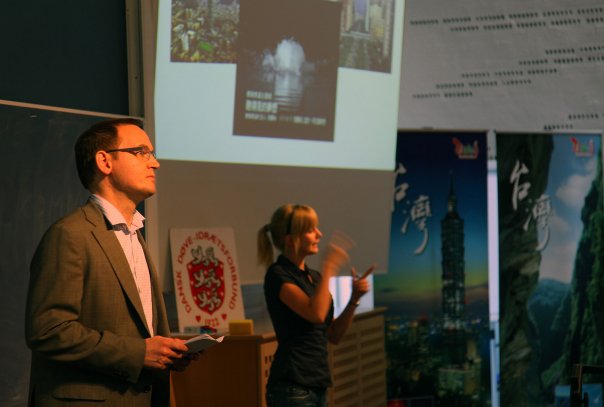Improving Taiwan’s future requires politicizing of European society about Taiwan’s political situation. Taiwan need alliances between politicians and European citizens that can add new dimensions on how to work for Taiwan’s future. People cannot expect that from the established political system. Politicizing means engagement in meaningful and open debate directly with European citizens about Taiwan’s place in the world and political situation. Taiwan shows its presence on many levels, including theater, music, movies, participation in various organizations, and exchanges between universities and high schools. A focus on politicization is not to exclude these vital initiatives, but to send a friendly reminder that politics changes life and it can change Taiwan’s future.
The OpEd was first published in Taipei Times on April 27 2016
The incoming Democratic Progressive Party government will hopefully establish better connections with civil society in Europe. Civil society in Europe can be a vehicle for breaking barriers and rigid forms of cooperation between Taiwanese and European politicians, diplomacy and institutions. Taiwan’s future is likely to depend, among many other factors, on how well it connects with European citizens and other societies around the world. It is here that civil society, broadly speaking, can play an important role.
Direct conversations between civil society, academics and politicians can be facilitated by civil society in Europe. One example is the roundtable discussion at the European Parliament on March 15 about Taiwan’s democracy, which included all main political parties and civil society in Taiwan, academics and members of the European Parliament.
The event was organized by the European Parliament’s Taiwan Friendship Group and Taiwan Corner. Taiwan Corner used its network across political parties and academics in Taiwan and Europe, while the Taiwan Friendship Group ensured the interest of politicians.
Such successful events organized independently will hopefully be encouraged in the future. Openness would allow various channels in civil society to come forward with alternative, and perhaps better, ideas.
Political parties and European institutions need such ideas to move forward in new directions to benefit Taiwan’s future.
This new direction is not embraced by the current Taipei Representative Office in Brussels. It seems to have misunderstood the importance of civil society. After the office was invited to the roundtable discussion, it tried to remove a speaker addressing social movements, alter the title of the event and invite its own speaker. Even after the successful event, the office continued its negative campaign. Obviously, a new direction would require a new mindset among Taiwan’s representatives.
Moreover, a new direction would require the politicizing of European society about Taiwan’s political situation.
The reason is that alliances need to be created between politicians and European citizens that can add new dimensions on how to work for Taiwan’s future. People cannot expect that from the established political system. Politicizing means engagement in meaningful and open debate directly with European citizens about Taiwan’s place in the world and political situation.
This would perhaps only consist of small steps, but it would be steps in the right direction. This approach can be a new and exciting challenge for Taiwanese groups that tend to be Taiwan-centric, because the groups act as important social networks rather than as political activists connected directly to European politicians and citizens.
One way forward for civil society is to use Europe’s media landscape. Trustworthy and available knowledge is becoming increasingly important to journalists and politicians in Europe, because resources are scarce.
Taiwan is not well-covered by international media. One example is the Sunflower movement in 2014, which was not mentioned much in international media. This was in stark contrast with the coverage of Hong Kong’s Umbrella movement. However, in Denmark, the events were covered and debated when Taiwanese civil society in Denmark contacted journalists.
Taiwan shows its presence on many levels, including theater, music, movies, participation in various organizations, and exchanges between universities and high schools. A focus on politicization is not to exclude these vital initiatives, but to send a friendly reminder that politics changes life and it can change Taiwan’s future.




